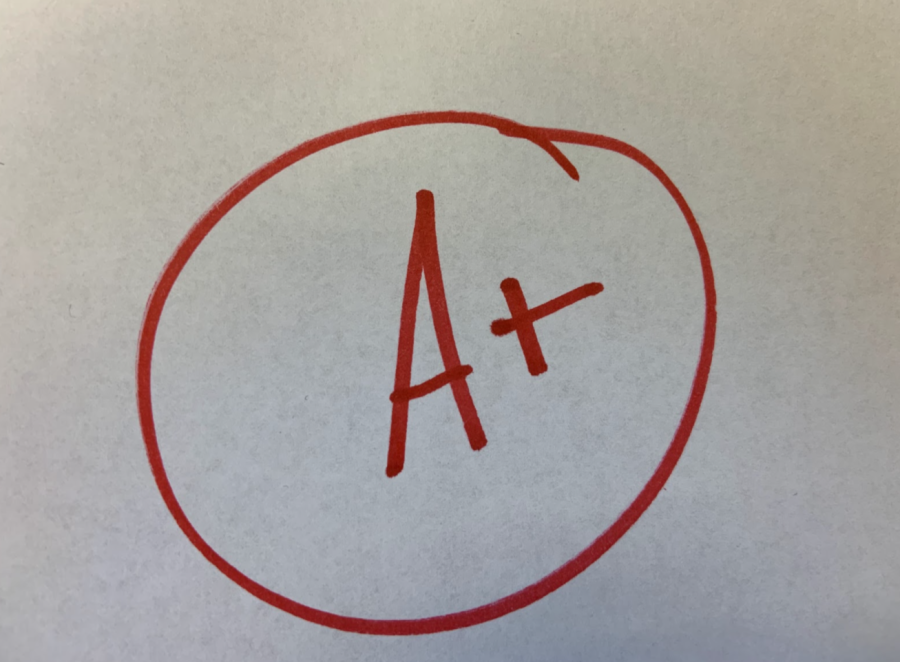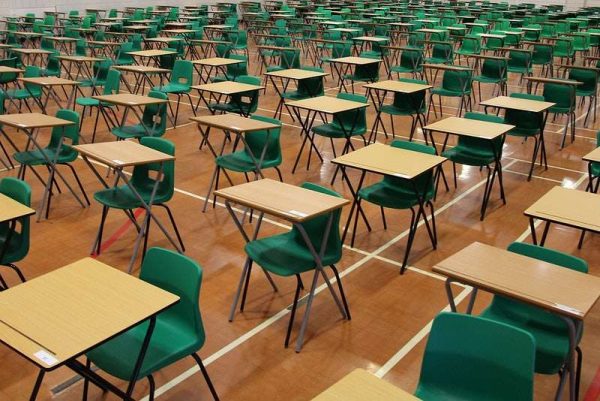What is grade inflation, and how could it affect Ludlowe students?
What is grade inflation?
Grade inflation is rewarding a student with a higher grade than they deserve. And, this inflation has become more common. Chris Weller of Business Insider revealed that, “from 1998 to 2016 the percentage of high schoolers nationwide with an A average jumped from 38.9% to 47% despite the average SAT score falling from 1026 to 1002 over the same period” (Psychology Today). Similarly, in 2017, Jon Marcus of The Atlantic reported that, “College Board [suggests] that the biggest culprits were private schools, in general, along with suburban public schools” (Psychology Today).
One reason for this grade inflation could be due to the pressures put on teachers by over-ambitious parents who are looking to send their kid to the most elite school, with more lenient grading from educators being one of the main tools to do so. This connection is more direct in private schools because the more students from their school that go to elite schools, the more demand for that private school and the more they can raise their tuition. In public high schools, this connection is less direct, however it is present in the academic atmosphere in high-achieving school districts, and the passing of school budgets.
Has grade inflation increased during the pandemic?
The hybrid and online learning method could have been connected to students receiving higher grades than usual. In an article written for The Williams Record, some professors reflected on the fall semester of 2020, and acknowledged that they noticed additional grade inflation. Chair and Professor of Political Science at William’s College, Mark Reinhardt said that his “grades were actually higher than usual”, and he continued by saying that he did not plan to give students higher grades that semester, but “he tried to be more understanding of the pandemic’s effect on students” (The Williams Record). Danielle Marseglia, a guidance counselor at Fairfield Ludlowe High School, noticed something similar saying teachers “pulled back, for sure, on the amount of things” given to students during the pandemic. Grade inflation was also more likely during the pandemic because it was harder for teachers to curb cheating on tests and assignments during online learning.
What are the negatives of grade inflation?
Grade inflation negatively impacts students because it leads to a reduction in motivation and performance assessment. A grade-inflated environment could lead to students not being motivated to complete their work because they will immediately expect a high grade. And, if all students receive grades that are inflated, it is hard to assess which students are more prepared and academically advanced than others. This could make it more difficult to seek post-graduate opportunities and employment because it becomes harder to identify who is most qualified.
How does this grade inflation affect Ludlowe students?
Grade inflation could affect Ludlowe students because if they’re used to receiving higher marks on assignments during the pandemic, then they will be less prepared to experience academic setbacks moving forward. A study done by Yang Wang titled “Early-career setback and future career impact”, found that if an individual fails early on in their career it leads to better performance for those who persisted through those failures. This raises the question if students who experienced grade inflation during the pandemic will be mentally ready to experience assignment/class failures.
Joanna Caserta, a guidance counselor at Ludlowe, shares that during online school “people could have their phones out for assessments, and now that they are thrown back into assessments in the classroom with no notes. We’re finding that students are floundering and asking to drop” because they are unprepared for academic failure. If students had been relying on their technology during the pandemic to complete their work, then they are less likely to know the material of that subject and be prepared for a poor test that they took without the added help of a device. Marseglia said something similar, stating that, “Teachers used to be more cutthroat” before the pandemic with grades, and that she is nervous that “the sense of failure and national grade inflation could get to a point where we are giving-in an awful lot, and not holding students accountable. And when you have to be held accountable later in life, it could be harder. Although that is not true for everyone.” Some Ludlowe students may not be as prepared to face the academic challenges and failures.

Isabelle is the Photography Editor for Prospect. This is her third year as a photographer on the Prospect staff.






